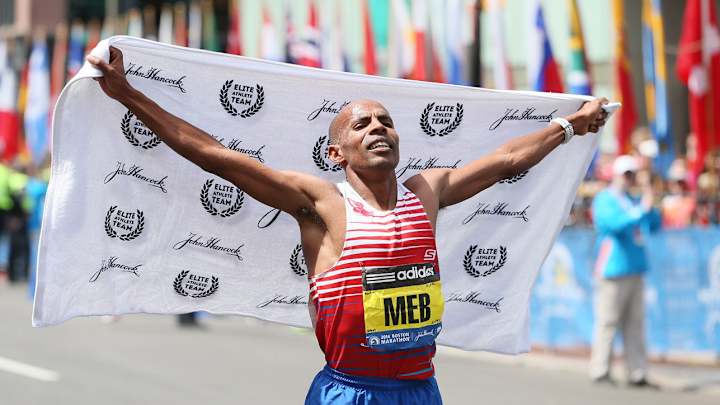Breaking the Wall: Mental Hacks for the Marathon

A marathon is all fun and games until you hit “the wall”. It’s not a literal wall, of course, but runners often use the term to describe the mental and physical fatigue that tends to come around the 20th mile of the 26.2-mile trek to the finish line.
When the body is running low on glycogen, the glucose and carbohydrates that are stored in a runner’s muscles and liver for energy, you can start to feel your internal fuel tanks creeping toward empty. When the wall approaches, you often struggle to move or raise your legs. Sometimes dark thoughts arise and maybe you start getting freaked out by the mental math of what’s left in the race. Pulling over to the sidewalk sounds like a good option, but you know you have worked too hard to stop mid-race. So what do you do?
Here are a few hacks for avoiding the wall in your next marathon:
Train for the distance
A marathon is 26.2 miles but you don’t have to cover that distance in training to be ready on race day. Professional marathoners sometimes do run a full race during prep, but in many cases the pre-marathon programs falls into the 22- to 26-mile range. Getting your body used to being on your feet for a long time and pushing your anaerobic system will help you get acclimated to the burning of glycogen and fat that will occur on race day, even at a slighty lesser distance.
Pace yourself
It is easy to get carried away amid the adrenaline and crowds on race day. If you have a race plan, stick to it. Focus on yourself and don’t worry about the masses of people that are passing you at the start of the race. If others are racing out of the gates, there’s a chance they can come back to you when they hit the wall. Better them than you.
Fuel up
Breakfast is commonly referred to as the most important meal of the day, and it plays a major role in marathon prep. The common recommendation among marathoners is to load up on a plate of pasta a night or two before the big race. Breakfast in the morning is just as or arguably more important because some of the breakfast foods are easier to digest and will take effect in time for the race. Common pre-race foods include bagels with peanut butter, yogurt, toast, rice, oatmeal with milk, bananas, syrup and some protein bars. If you anticipate that you could be in a rush to get to the starting line, packing carbs into a smoothie also works. And don’t forget about hydration—be sure to drink water and sports drinks. The ideal meal should be about three hours before the race so that everything can be digested and the stomach isn’t too full. How much you eat and when you eat it isn’t something to test on race day; it should be put into practice with some of the long runs in training.
Think happy
It’s important to avoid getting trapped in bad thoughts. Self-talk can work if you reaffirm yourself with positive dialogue. After Meb Keflezighi won the Boston Marathon in 2014, he told reporters that he fed off the crowd and the memory of the bombing victims from ‘13 to push himself to the finish line. "Boston Strong, Boston Strong, Meb Strong, Meb Strong" is what he repeated to himself en route to becoming the first American to win Boston since 1983. Sometimes it comes to you on race day and other times you can think of sayings during long training runs and put them into practice beforehand.
Experience
The pain immediately after a marathon can lead you to question why you did it in the first place or if you ever want to do another. Once that subsides, you’ll find a sense of satisfaction, and if you decide to do it again, then you’ll have that experience on which to rely. You know which areas to tweak to avoid the wall or how to push it further into the race so you don’t have to dig as deep for as long.

An avid runner, Chris Chavez covers track and field, marathons and the Olympics for Sports Illustrated.